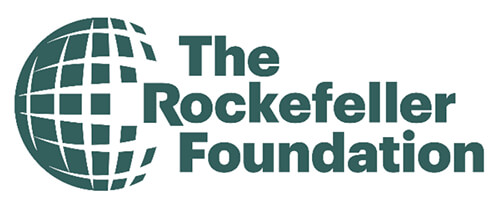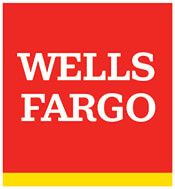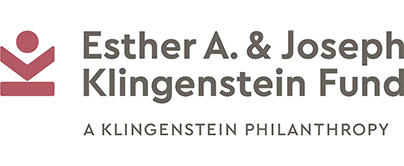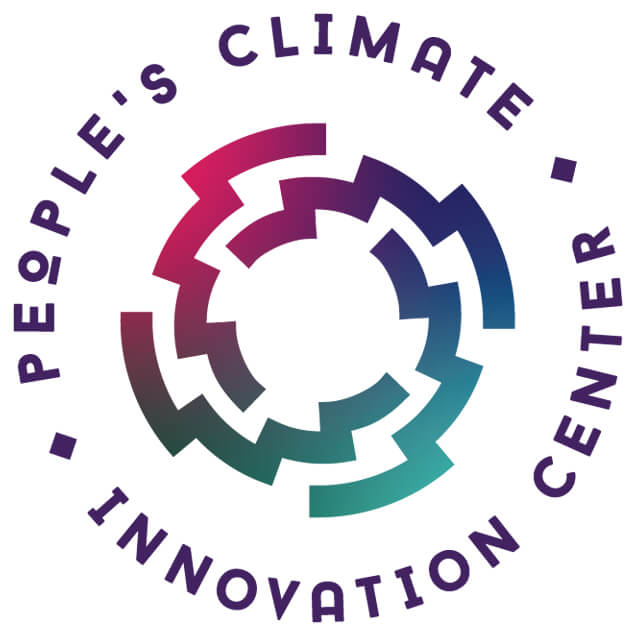
Funding Streams for Energy Upgrades in Low- and moderate-income households
Low- and moderate-income (LMI) families tend to spend a large portion of their income on energy bills but often cannot afford the energy upgrades that would cut energy costs. ACEEE has released a topic brief that outlines how to sequence different funding streams so that LMI households can receive efficiency upgrades at little to no cost. The steps include enrollment in weatherization programs, exploring different rebates and other financial incentives, and examining different financing solutions such as low-interest loans from mission-driven lenders or on-bill repayment options.
Strategies to Mitigate Risks in Retrofit Programs
R2E2 has released a policy brief that outlines how to identify and mitigate the risks that can arise during energy upgrade programs. It provides useful guidance on how to best approach these issues and identifies strategies to improve buildings without negatively impacting residents. Energy retrofits in affordable housing can provide a range of benefits, including reduced energy use, lower utility bills, and enhanced health and safety for occupants. However, they can also cause unintended consequences if proper protections aren’t implemented.
Strengthening Community-Government Partnerships to Lower Building Emissions
Facilitating Power developed the Spectrum of Community Engagement to Ownership Toolset for Community Climate Shift to improve community-government partnerships to equitably reduce climate emissions through building electrification and decarbonization. It highlights how community-based organizations and local governments can work together to advance the priorities of impacted communities, while emphasizing that these communities must also play a leadership role in developing solutions. These partnerships can involve designing community-driven policies and programs, reallocating resources to community-led efforts, encouraging participation from impacted residents early in the planning process, and other actions to stimulate dialogue and drive progress toward equitable emissions reductions. Separately, ACEEE has released a guide which outlines best practices for creating and managing Local Governance Boards, which encourages co-governance between communities and program administrators. When enacted, these boards can lead to deeper community participation and equitable decision making in building energy upgrade programs.
Encouraging the Transition to All-electric Buildings
The New Building Institute has released a series of resources designed to support building designers, energy auditors, and others electrifying buildings and improving energy efficiency. The resources include guides, slide decks, and factsheets that provide information on transitioning to all-electric design, electrifying space heating/cooling with heat pumps, and electrifying water heating systems with heat pump water heaters. These resources are designed to help overcome common barriers and make it easier to deliver healthier, more efficient buildings.
Community Workshop on Saving Energy in Homes
ENERGY STAR has released a customizable workshop designed to help community members learn more about home upgrades and incentives. Included in this toolkit is a PowerPoint presentation that can be customized by location, a worksheet to engage audience members on their home energy use, and training materials for community organizers. These materials provide useful information about energy efficiency, the benefits of the most impactful upgrades, and how to use incentives such as income-qualified assistance, state rebates, utility rebates, federal tax credits, and other financing options to make efficiency upgrades affordable.
Advancing Environmental Justice in Frontline Communities
Just Solutions has a growing series of policy reports and analyses that focus on advancing climate justice, centering frontline communities, and advancing equitable solutions. The group’s work addresses key areas such as energy efficiency, health and safety, affordability, and federal policy while prioritizing the expertise and lived experiences of community members. The reports, toolkits, and resources can be used by policymakers and community stakeholders to promote equitable climate justice policies. One of the briefs explores the programs and policies of 13 environmental justice organizations across the country, many of which are working to ensure that programs for home retrofits benefit low-income households. The brief outlines innovative practices and highlights the necessary investments and limitations that must be addressed.
Planning for Decarbonization That Doesn't Displace Renters
This article from the publication Shelterforce discusses the need to decarbonize U.S housing stock due to climate change while promoting steps to help renters stay in their homes and reap the benefits of energy upgrades. The article outlines the barriers to upgrading rental properties and polices that advocate for renter-centered decarbonization, such as codifying renter protections into law, subsidy programs that restrict evictions and rent increases, and a successful citywide ban on substantial remodel evictions in Los Angeles.
Delivering Home Energy Upgrades with Cost Savings
Elevate has released a paper on single-family home retrofits in Chicago and Minneapolis that explores how to eliminate potential funding gaps and improve overall financial viability while providing reasonable terms and savings for low-and moderate-income households. Key audiences are state rebate program administrators, Greenhouse Gas Reduction Fund (GGRF) implementers, lenders that work with these programs, and housing developers taking advantage of these programs.
EPA Launches ENERGY STAR Home Upgrade Service Provider Partnership
This new program is designed to help companies and community-based organizations bring the benefits of energy savings and a clean energy future to American households nationwide. Its goal is to accelerate the adoption of the elements of an ENERGY STAR Home Upgrade, a set of six electric energy efficiency improvements that are designed to work together to deliver significant energy and cost savings. These upgrades include ENERGY STAR-certified heat pumps, heat pump water heaters, smart thermostats, windows, well-insulated and -sealed attics, and electric-ready wiring/panel improvements. Through this partnership, EPA facilitates information exchange and connects service providers that are implementing and promoting home upgrades to advance productive collaboration. Service providers meet specific eligibility criteria and function as a concierge for energy efficiency home upgrade services.
EPA’s Climate Resilience and Adaptation Funding Toolbox
The Environmental Protection Agency recently released the Climate Resilience and Adaptation Funding Toolbox (CRAFT), which contains resources to help EPA’s funding applicants and recipients make climate-informed investments. CRAFT includes overviews of EPA funding programs where climate resilience considerations might be incorporated, climate risk tools and resources to evaluate and consider climate change risks, and communication materials to facilitate meaningful discussions about adaptation, resilience, and environmental justice.
HUD’s Build for the Future Technical Assistance Guide
The Department of Housing and Urban Development (HUD) recently launched the Build for the Future technical assistance guide to leveraging federal funds to retrofit affordable homes. It also updated its funding navigator tool to improve the user experience by showcasing how communities can utilize federal investments to make critical climate and resiliency upgrades.
New ACEEE Policy Brief on High Energy Burdens for Low-Income Households
New research from ACEEE shows that a quarter of low-income households in the United States spend more than 15% of their income on energy bills. The policy brief found that on average low-income residents, Black households, and Hispanic households experience higher energy burdens—the share of income spent on energy—than other households. This brief recommends that policymakers and regulators prioritize low-income households—both renters and homeowners—for energy efficiency investments, eliminate barriers that many disinvested households face in accessing energy programs, and increase funding for federal, state, local, and utility programs for efficiency and weatherization.
Heatmap Article on How Americans Are Using IRA’s Tax Credits
This article from Heatmap explains how the Inflation Reduction Act’s subsidies are underused by low-income households. The article interprets new data from the Treasury Department that provide insights into two tax credits in particular—one that encourages Americans to make energy-efficient changes to their homes, and another that goes toward installing rooftop solar or another form of zero-carbon energy generation. The article provides four key takeaways related to how Americans are using the IRA’s tax credits.
R2E2 Launches Playbook for Equitable Retrofits in Affordable Housing
R2E2 recently launched the R2E2 Playbook, a tool for community-based organizations, state and local governments, and others seeking to establish, improve, or expand energy upgrade programs for low- and moderate-income housing in their communities. The Playbook includes guidance for program administrators and highlights best practices from across the country to help ensure programs achieve goals like lower energy bills, lower greenhouse gas emissions, racial and social equity, improved health outcomes, and local economic development. R2E2 launched the R2E2 Playbook in late June with a one-hour webinar featuring speakers from some of the over 90 programs highlighted in the Playbook.
Guidance for Developing Community Benefit Plans to Leverage Federal Funding
The People’s Justice40+ Community Benefit Playbook: A Guide to Capturing Federal Infrastructure Investments, from Emerald Cities Collaborative, provides guidance to BIPOC and frontline communities on developing Community Benefit Plans (CBP) that leverage the Justice40 Initiative and the climate, economic, and infrastructure investments of major federal spending bills. This resource is periodically updated.
Guidelines for Creating Community-Driven Building Retrofit Programs
C40 Cities, Elevate, and the Building Electrification Institute developed Guidelines for Creating Community-Driven Building Retrofit Programs that showcase how cities in the United States can implement building decarbonization policies and programs in an equitable manner. The guidelines provide four case studies of cities that have implemented community-driven building retrofit programs.
Centering Housing Justice and Health Equity in Building Decarbonization
This issue brief from the Building Energy, Equity, and Power coalition (BEEP) provides historical context about how racist policies and practices created current disparities in the housing market and offers policy recommendations for creating equitable building decarbonization programs. It also highlights programs that seek to remedy health and housing disparities for the most impacted populations while also addressing the climate crisis.
Inflation Reduction Act Can Help Decarbonize Without Displacement
Are you interested in learning more about how equitable building energy retrofit programs can advocate for renters? This resource, from the Climate and Community Project (CCP) analyzes how Inflation Reduction Act (IRA) provisions can help or harm renters and outlines steps to create a more safe, healthy, and affordable housing system.
Centering Housing Justice and Health Equity in Building Decarbonization
This issue brief from the Building Energy, Equity, and Power coalition (BEEP) provides historical context about how racist policies and practices created current disparities in the housing market and offers policy recommendations for creating equitable building decarbonization programs. It also highlights programs that seek to remedy health and housing disparities for the most impacted populations while also addressing the climate crisis.
State Energy Offices Can Maximize Home Energy Upgrades and Savings
This article from RMI provides guidance on how states can combine different federal incentives from the Inflation Reduction Act (IRA), fill funding gaps, and design home energy upgrades programs that efficiently and comprehensively deliver whole-home retrofits.
Guidelines for Maximizing the Benefits of Federal Investments in Buildings
This new resource provides a starting point for policy makers designing equity-driven building energy retrofit programs that will benefit from Inflation Reduction Act (IRA) and the Infrastructure Investment and Jobs Act funding (IIJA). It highlights funding opportunities, barriers to accessing funding for low- and moderate-income communities, and guidelines for equitable program design. The resource was created jointly by Elevate, the Building Electrification Institute, Emerald Cities Collaborative, the Greenlining Institute, Greenlink Analytics, Rising Sun Center for Opportunity, and NRDC.
Need Help Planning Energy Upgrade Programs for Low-Income Housing in Your Community?
Are you part of a state or local government, community-based organization, or other entity working to scale up energy upgrades of low-income housing in your community? Could you use some help? R2E2 is working with communities to jumpstart upgrades for single-family and multifamily affordable housing, especially in frontline communities. We want to hear directly from you: Would you like to be considered for help from R2E2 to plan, launch, implement, or scale your energy upgrade program? If you would, please complete our 10-minute survey by March 1. As R2E2 secures funding for this work, we will consider and engage those who complete the survey. Our goal is to provide grants to participating communities in addition to technical assistance. We particularly encourage those who have completed some level of planning for their upgrade program to complete the survey. Please note that this technical assistance pertains to programs, not individual buildings.
Federal Efficiency and Electrification Rebate Programs
Are you interested in learning how community-based organizations and local government officials can help shape states’ energy efficiency and electrification rebate programs? Under the Inflation Reduction Act (IRA), state energy offices will design and implement the programs, but local retrofit program administrators can play an important role in marketing these programs, coordinating projects, stacking multiple funding streams, and possibly applying for and receiving rebates on behalf of eligible households. This resource provides an overview of the Department of Energy’s Home Efficiency Rebate Program (Section 50121 of IRA) and Home Electrification and Appliance Rebate Program (Section 50122 of IRA) and identifies areas where states have flexibility to adapt these rebate programs to best serve low-income and multifamily households.
The AFFORD Tool for Navigating Federal Funding Opportunities and Decarbonization Resources
The AFFORD tool, an external resource developed by RMI and the World Resources Institute as part of Bloomberg Philanthropies’ American Cities Initiative, is designed to help users navigate and prioritize federal funding, tax credits, and other incentives. The free tool includes information on 248 different sources of funding and incentives, some of which can be used to implement building energy upgrades. The tool provides filters to help you identify funding and incentives that are relevant to your project, goals, and community.
C40 Knowledge Hub's New Resource on Maximizing Federal Climate Investments
This external resource, developed by Climate Mayors, the Urban Sustainability Directors Network, and C40 Cities, illustrates the roles that cities will play in implementing the Inflation Reduction Act and the 2021 bipartisan infrastructure law. It includes guidance on supporting and partnering with frontline communities and community-based organizations. It also identifies the tools and resources local governments need to deploy federal climate funds and recommends how federal agencies, state governments, funders, and climate advocates can accelerate this process.
Federal Funding FAQs
You ask, we answer! In our Resources section, we address questions R2E2 has received related to new federal funding opportunities to support energy efficiency retrofits of low- and moderate-income housing. These questions are largely focused on programs made available through the Inflation Reduction Act of 2022 (IRA). Have questions related to federal funding? Send them to our team via the link below! We’ll be updating this list as we receive new questions.
The Green and Resilient Retrofit Program (GRRP)
Interested in learning more about the Department of Housing and Urban Development's Green and Resilient Retrofit Program (GRRP)? R2E2 has assembled a short resource intended for states, local governments, retrofit program administrators, and community-based organizations (CBOs) looking to support HUD-assisted, affordable multifamily housing owners in pursuing energy efficiency and resiliency upgrades as part of their recapitalization projects. If you have any questions related to this resource, please submit them on the Stay Informed tab.











